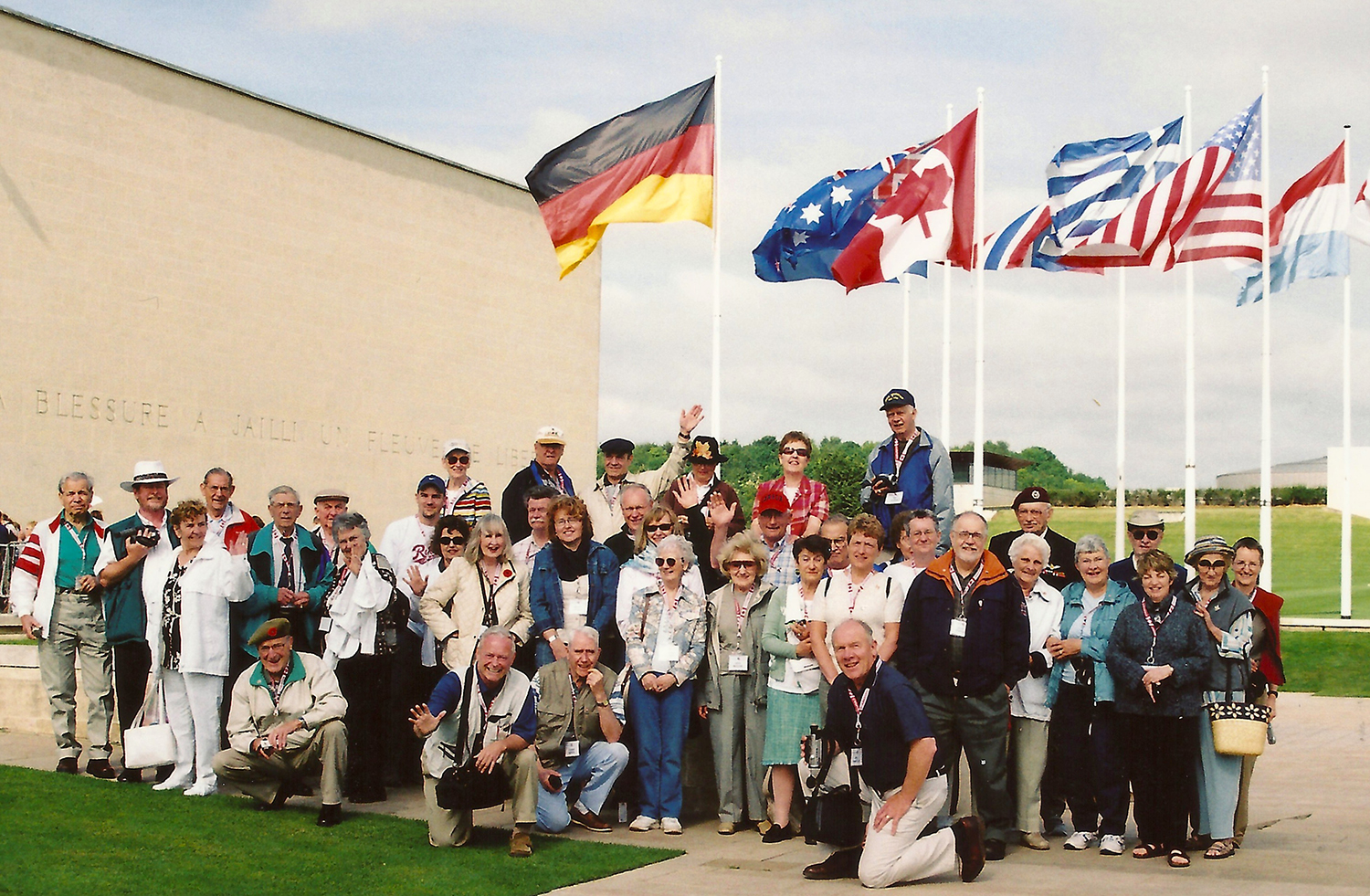
We arrived in Normandy that spring in time for the anniversary observances of the liberation of France. Street posts, balconies and memorial parks were festooned in patriotic bunting, streamers and the national flags of France, Britain, America and Canada. And Germany!
“Why is the German flag with red, gold and black included?” I asked our tour guide on the trip.
“New theme this year,” she said. “Remembrance and reconciliation.”
It stood out even more so after that. All of the ceremonies organized for the D-Day and Normandy liberation had that same look. Not only did the Tri-Colour, the Union Jack, the Stars and Stripes and our Red Maple Leaf fly over the events. So too did the current flag of Germany.
At one point, I happened across a group of sailors from the French Navy. In my high-school French, I asked them about the reconciliation element of the planned D-Day commemorations.
“We think reconciliation is a good thing,” they all said without prompting. “It’s time.”
Memories of that unique time in Europe came flooding back to me the other night as I listened to President-elect Joe Biden address fellow citizens with his message of healing the soul of America. His campaign all along carried that intention of trying to deal with the problems under which he sees his country’s reputation faltering – the pandemic, economic downturn, systemic racism and the challenges of climate change.
But Biden’s (or his speech writer’s) choice of words I thought appropriate and highly relevant for so much of what we continue to face this year 2020.
“Let this grim era of demonization in America begin to end here and now,” Biden said on Saturday night. The President-elect, I believe, truly wants to end the past four years of division in Congress, the deepening hatred between whites and blacks and the political rift over stopping COVID-19.
And I’m reminded that such mending and forgiveness is possible. Among the examples, I remember that image from the Vietnam War of young Kim Phuc after the U.S. napalm attack in 1972, that she later met and forgave the man who planned that bombing. Another came out of the Holocaust, which killed the majority of Corrie Boom’s family from the Netherlands; and yet she forgave the perpetrators.
When civil rights activist John Lewis died recently, we learned at his funeral that he forgave George Wallace, the former segregationist governor of Alabama, responsible for triggering police attacks against peaceful demonstrators in the 1960s. Perhaps most stark and yet equally credible – given the nature of the man – when Nelson Mandela met those who had imprisoned him during South Africa’s apartheid regime for 27 years, he had this to offer.
“We especially need to forgive each other,” he said, “because when you intend to forgive, you heal part of the pain, but when you forgive, you heal completely.”
It’s a small thing, but as we directed cars and trucks through the wonderful Honour Our Veterans drive-by event in Elgin Park on Sunday, well before the event began, hundreds of vehicles were backed up waiting to pass the vets. I was in the middle of that traffic jam, but despite my ineptitude at prioritizing all those well-wishers on the hill, I saw and heard very little complaining. Despite the inconvenience of having to wait, everybody seemed glad to be there and the chance to applaud the vets as an alternative to a Remembrance Day at the cenotaph.
As an intriguing sidebar, I read a survey conducted earlier this year by Ohio State University. Published in the journal Communication Research, it questioned young people who read short narratives like the ones they might see in TV episodes, and asked if they preferred villains being punished or forgiven. It turns out – in their entertainment at least – that people prefer punishment over forgiveness.
“(The majority) have a gut-level response that people should be punished for wrongdoing,” the study concluded. “Seeing a lack of punishment requires a level of deliberation that doesn’t come naturally.” I guess that proves reversing demonization has a long way to go in America.
I mentioned earlier my encounter with the sailors from French warships on the beaches of Normandy. They had readily admitted that a sufficient number of years had passed since the end of the Second World War – now 75 years ago last spring – to consider reconciliation.
They pointed at the flotilla of warships sailing along the coast that spring day. There were French warships sailing with Allied ones and German ones. They’d said, yes, it was time for reconciliation with Germany.
“Yes, I understand,” I responded. Then I asked a tougher question. “Have you made friends with any of the German sailors?”
The young men looked at each other and said, “No. Not really.”
I guess it’s one thing to end an era of demonization, but quite another to build friendships with former enemies. Time remains the great healer.
Hi Ted,
Wim here. The Red-Yellow-Black flag in the picture are actually the national colors for Belgium, NOT Germany. Where Belgium had vertical stripes, Germany has (and always had) horizontal ones. Would be good to clarify that I think. I hope you have a great Holiday Season. Take good care and stay safe!